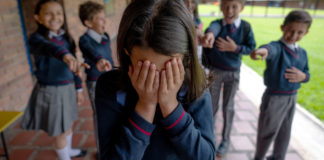The dilemma of parents raising their children under pressure
Lucy is an 8-year-old girl who has a range of interests broader than that of an ordinary adult. She is enrolled in an international school, where classes are taught in French by native speakers. Her classmates are children of expats from different cultures, which amuses her nanny, who, when picking her up from school, says that she "took her from the children's UN."
Kids need more sleep than you think
In young children, we know having inadequate sleep can affect their mood. As your child grows older, the effect of lack of sleep worsens to the point where they become at higher risk of mental health issues and academic problems. Not only that, a habit of staying up late can also negatively impact their health and wellbeing.
Parenting lessons from imperfect parents
A few years ago, I had the pleasure of meeting a young woman who was good at everything. Although she was only in her early twenties, she was an expert in the kitchen, passionate about cleaning, attentive to the needs of children, had a green thumb, was skilled at raising animals and was able to give an articulate speech in her field of...
How harmful is corporal punishment for children?
In an ideal world, everything would be simple: you, as the father or mother, tell your child, the apple of your eye, to do something and, being perfectly obedient and submissive, they do as they’re told. However, we don’t know if such a world would really be ideal. Nevertheless, for many parents, this resembles a paradise to which they would love to escape...
To raise an Amish child
I’m a walking contradiction when it comes to technology. I spend far too much time on the internet—some productive, such as paying bills, researching for my work and reading the news, but mostly wasted time on one-too-many funny cat videos—but I’m still using a Nokia E71 mobile phone bought in 2009. (Don’t laugh! It did win Mobile Choice’s phone of the year in...
How to raise confident children
While it can be healthy to be aware of other people’s judgement—we can adjust our behaviour to become more pro-social—sensitivity to the perception of judgement can get out of hand. In worst case scenarios, children can become depressed, anxious and avoid settings in which judgement is anticipated. Here are some strategies to help, as shared by clinical psychologist Katie Kjelsaas.
Misunderstood attitudes of parents | How I came to understand myself
When I became a parent, someone told me that I would learn to be a child. However, I was determined to be more of an adult than ever and not repeat attitudes that I considered wrong, including those of my parents.
No one is perfect: how to help children learn from mistakes
To err is human. “The only sure way to avoid making mistakes is to have no ideas”, Albert Einstein said.
Having the courage to be a stepparent
In the whole array of virtues that a stepparent must possess in order to succeed in raising a well-rounded child whose world has been shattered by the separation of his or her parents, courage is only mentioned in passing. Yet courage is the foundation of a construction that promises to be challenging from the outset, say those who have plunged into the role...
Disciplining children creates distance. True or false?
He is 22 years old and has deep black eyes. He is tall and very confident. Why wouldn’t he be? He is doing satisfactorily in college, works to support himself and makes the most of his free time with his friends.
Can parents help motivate their children?
One of the biggest challenges facing both parents and teachers is to help children stay motivated so that they can keep focus, persevere when they are struggling, move forward, and finish what they have begun.
No monster under the bed: Helping your child cope with fear
There is no monster under the bed—that much is certain. But how do you convince your child of this, when they come to you, for the hundredth time, with the same fear? When you constantly use the same unheeded command, "Stop fooling around and go to sleep!", this is a sign that you need to learn more about your child's anxiety, and how...
Bullying: Effective strategies to put an end to it
Children who fall prey to bullying cannot save themselves, just as the children who have become accustomed to bullying others will not give up this behaviour without outside intervention. As the phenomenon of bullying spreads, with harmful consequences on children's development, the need to know and apply strategies to combat it is becoming more pressing.
The fear that holds kids back
Before the age of two, most children think the world revolves around them. From their point of view, what they think and how they feel must be what others think and feel, too. They don’t have the concept that other people have different needs and perspectives. It’s why if they can’t see you when they’re playing hide-and-seek, they believe you surely can’t see...
Lessons from a mum’s group
FTM here. My LO has been EBF since birth. Now she’s eight months. My MIL thinks she should be on purees, but I want to try BLW.”


























